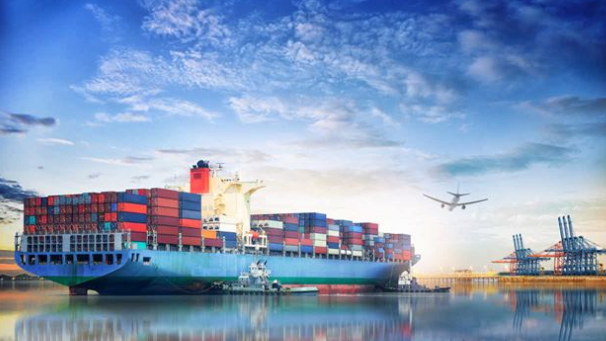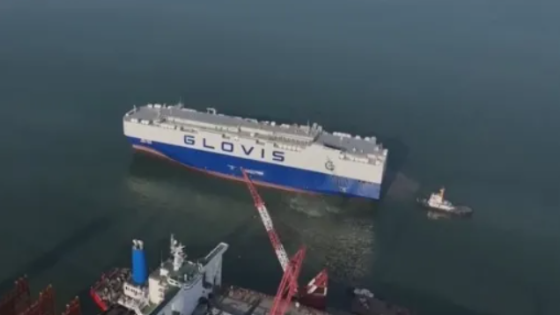According to the Canadian Coast Guard, the grounded MSC Baltic III remains unable to refloat safely.
The MSC Baltic III container ship (33,767 DWT) lost power during a winter storm and has been stranded in Canada for 12 days. The Canadian Coast Guard reports that weather conditions continue to hinder their efforts, along with a private salvage team. The latest updates indicate that their primary focus is on recovering fuel and other potential pollutants from the vessel.
The ship ran aground near Wild Cove, Newfoundland, on February 15, prompting the Canadian Coast Guard to conduct a helicopter rescue operation for the crew.
Since the 679-foot (203-meter) vessel became stranded, the region has been battered by ongoing winter storms. The Coast Guard stated that rescue teams have frequently been unable to board the vessel, and rough weather has also hampered water-based operations. They are currently monitoring the ship from both shore and air.
Earlier this week, divers confirmed that the hull below the waterline had sustained visible damage or breaches. The ship remains firmly grounded on the seabed, and so far, no significant damage has been observed near the waterline. However, images show some deformation in the hull, raising concerns about potential cracks.
In its latest report released late on February 27, the Coast Guard stated: “Given the current condition of the vessel, it cannot be safely refloated. The initial priority will be removing fuel and cargo.”
Due to the urgency of the situation, the Coast Guard is exploring alternative solutions, including restoring an old road and an all-terrain vehicle path to access the remote area. The road reportedly requires upgrades to accommodate heavy equipment and tractor-trailers. Additionally, the Coast Guard is considering constructing a passage from the shoreline to the ship's bow.
Investigations have confirmed that the vessel carries approximately 1.7 million liters of heavy fuel oil and marine gas. While no pollution has been detected, there are concerns about potential leaks. One of the options under consideration is pumping the fuel ashore, as a salvage vessel may be unable to reach the site.
MSC initially informed the Coast Guard that the vessel carries about 470 containers, more than half of which are empty. The remaining containers hold cargo such as food, lumber, and paper products. The Coast Guard’s latest update states that eight containers carrying polymer pellets (nurdles) have been prioritized for removal.
The Coast Guard also noted that some cargo onboard is classified as hazardous under shipping regulations, including glutinous rice, flour, and whiskey. However, under normal circumstances, none of these materials pose immediate danger.
The biggest challenge now is racing against time to mitigate risks, as the region remains vulnerable to continued winter storms that could further impact the stranded vessel.

Last
"Albert Maersk" Maersk's 11th Dual-Fuel Methanol Vessel Named
Danish shipping giant Maersk recently celebrated the naming of its latest dual-fuel methanol container vessel in Mumbai, marking p

Next
"Upgraded High-Capacity" Car Carrier Makes a Stunning Debut in Guangzhou
On February 27, the 8,600-vehicle dual-fuel car carrier, built by Guangzhou Shipyard International (GSI) under China State Shipbui
